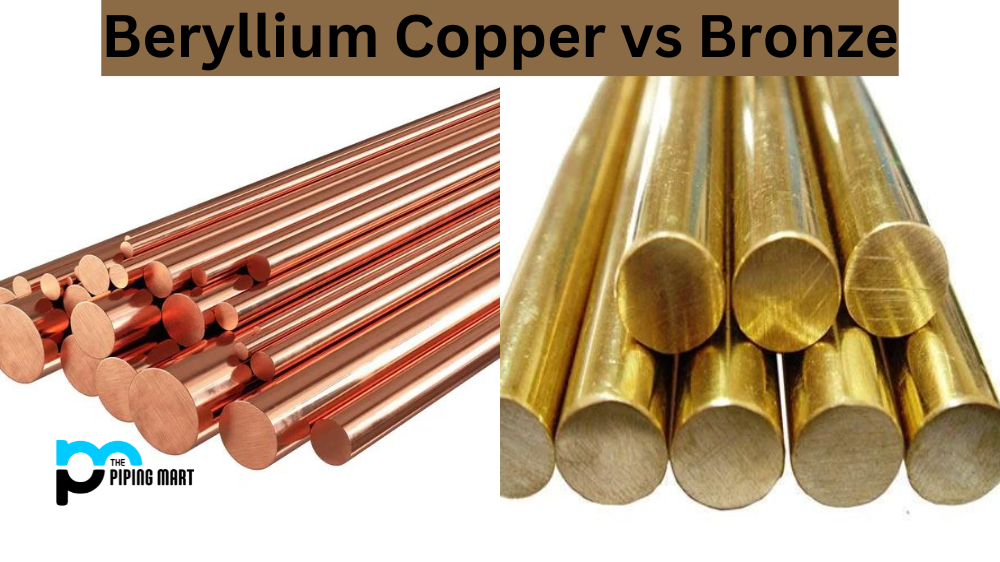Copper is one of the most widely used metals in various industries, and its alloys with other metals form more durable and strong materials. Two of these alloys are beryllium, copper, and Bronze. However, many people often confuse them for the same materials, which is not the case. This blog post will compare beryllium copper and Bronze’s properties, uses, and advantages.
What is Beryllium Copper?
Beryllium copper is an alloy of copper, beryllium, and other elements such as nickel or cobalt. It is a high-performance material with superior strength, hardness, electrical conductivity, and corrosion resistance than pure copper. Beryllium copper is also non-magnetic, spark-resistant, and has excellent thermal conductivity.
What is Bronze?
Bronze is an alloy of copper and other metals such as zinc, tin, lead, or manganese. It has a lower strength and hardness than beryllium copper but higher flexibility, machinability, and wear resistance.
Difference Between Beryllium Copper and Bronze
Applications
The primary application of beryllium copper is in the aerospace and defence industries, where it is used to make various critical components such as springs, diaphragms, connectors, and electrical contacts. Its high conductivity makes it suitable for electrical and electronic applications.
Conversely, Bronze is commonly used in art, sculpture, musical instruments, and marine applications such as propellers, valves, and plumbing fixtures. It’s corrosion resistance and flexibility make it ideal for such applications.
Toxicity
Another significant difference between beryllium copper and Bronze is their toxicity. Beryllium is a toxic element that can cause lung cancer and other respiratory diseases when inhaled. Therefore, beryllium copper should be handled cautiously, and proper safety measures should be taken. Bronze, on the other hand, is not toxic and is safer to handle and use.
Fatigue resistance
One of the advantages of beryllium copper over Bronze is its high fatigue resistance. Fatigue is the gradual weakening of a material under repeated stress cycles, which can cause structural failure. Beryllium copper can withstand millions of stress cycles without any significant damage, which makes it ideal for applications where high cyclic stress is expected. Conversely, Bronze has a lower fatigue resistance and may require frequent maintenance or replacement under cyclic loading conditions.
Cost
Lastly, beryllium copper costs are higher than Bronze due to its higher production cost, toxicity risks, and specialized applications. Bronze is more affordable and widely available in various forms, sizes, and alloys. Therefore, Bronze may be a viable alternative where high performance is not critical, and the cost is a significant factor.
Conclusion
In summary, beryllium copper and Bronze are two alloys of copper that differ in terms of properties, uses, and advantages. Beryllium copper is a high-performance material used in aerospace, defence, and electrical industries, while Bronze is commonly used in art, marine, and plumbing applications. Beryllium copper has superior strength, hardness, and fatigue resistance than Bronze, but it is more toxic and expensive. Bronze is ductile, machinable, and affordable but has lower strength, hardness, and fatigue resistance than beryllium copper. Therefore, the choice between beryllium copper and Bronze depends on the specific application requirements, safety concerns, and cost considerations.

Hey, I’m Krutik, a casual blogger expert in the metal industry. I am passionate about providing valuable information to my readers. With a background in engineering and construction, I like playing Cricket & watching Netflix shows in my free time. Thank you for visiting my blog, and I hope you find my information helpful!




